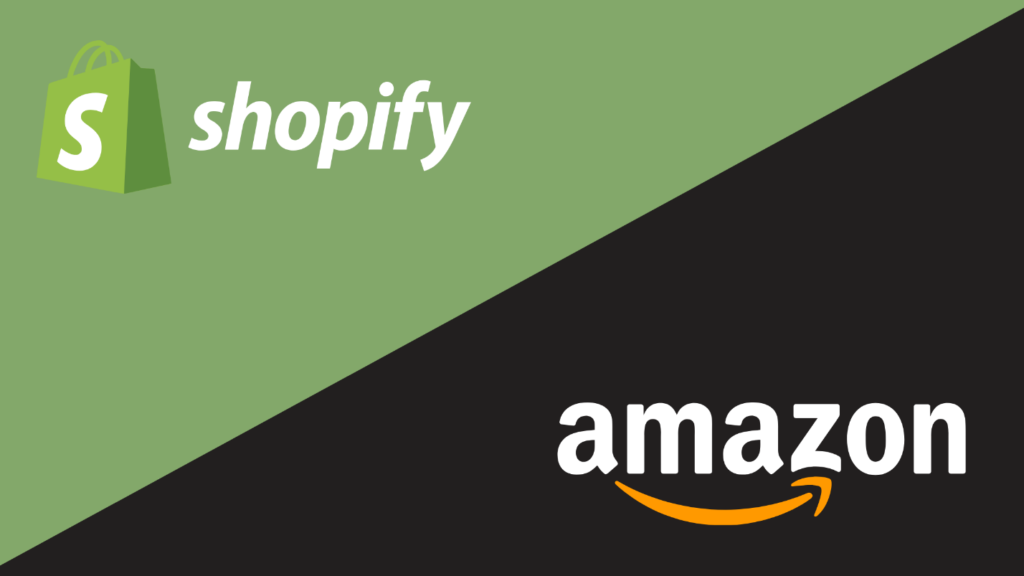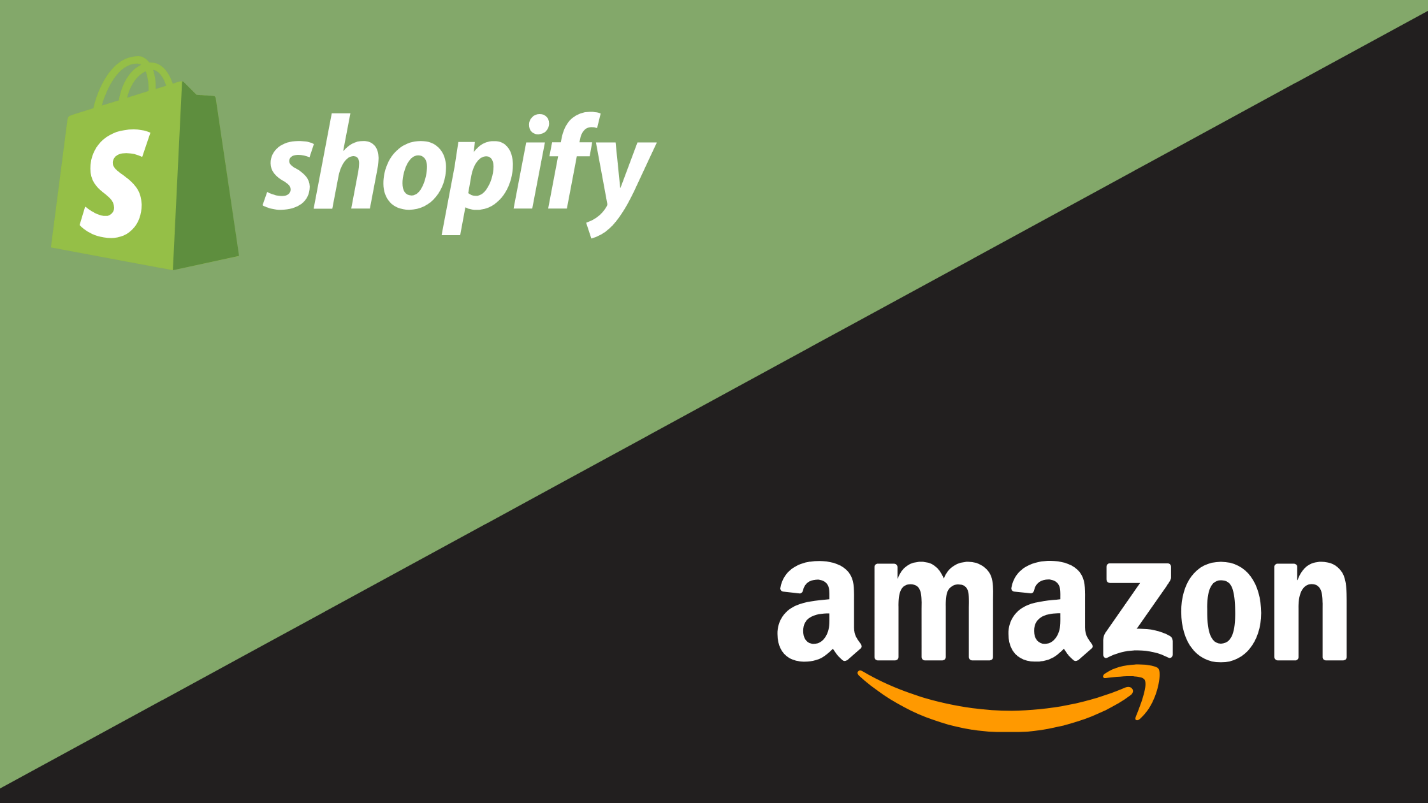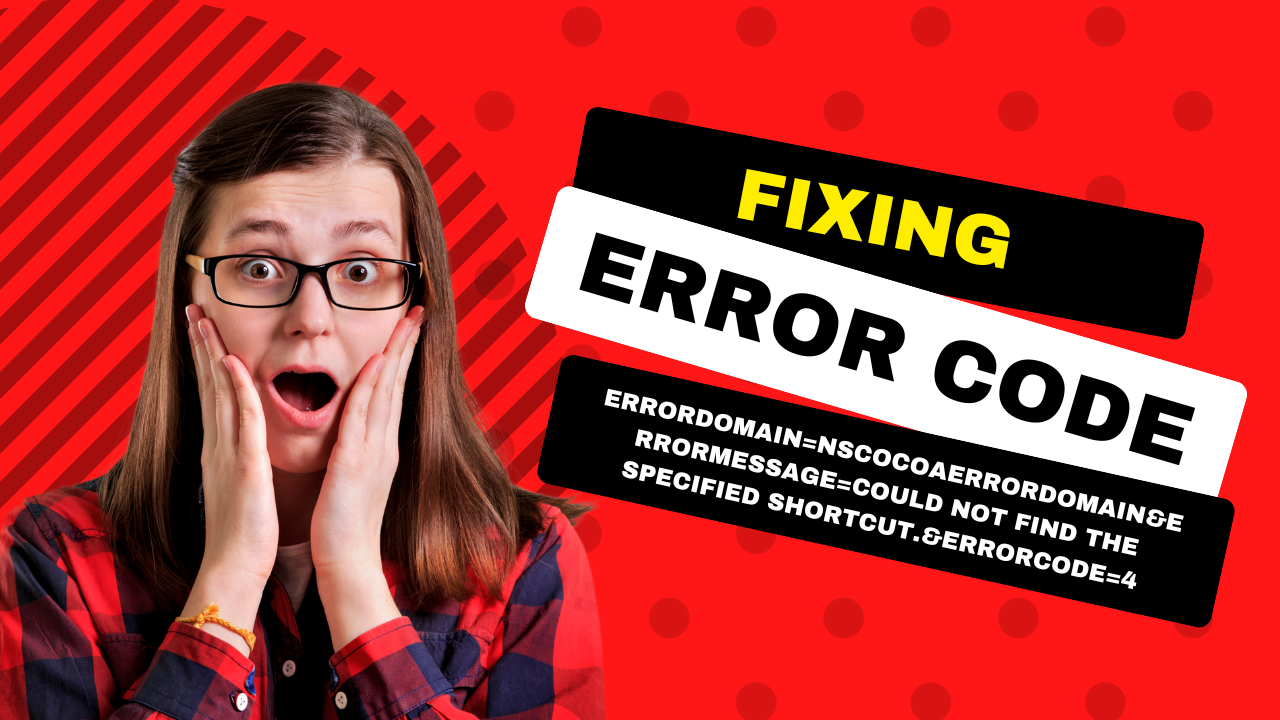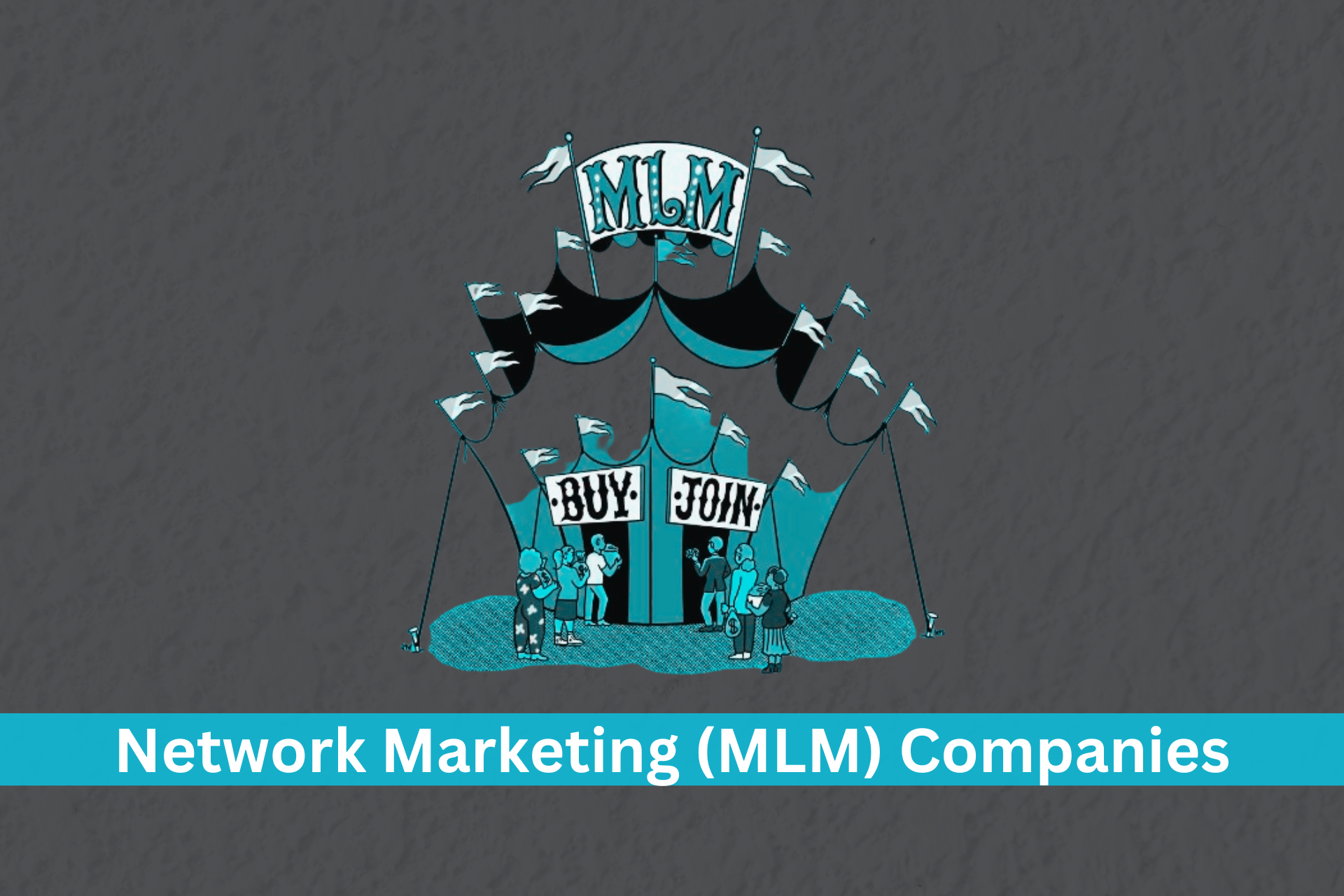
Shopify and amazon both are iconic eCommerce business builders. These are one of the biggest battles of the eCommerce world in 2021. They are both big names and a good opportunity for sellers that offer diverse opportunities for the sellers.
Choosing the right eCommerce platform for your business is one of the crucial decisions you will make as an online seller. It can be hard for you to pick one platform out of the leading giants that have more than a million visitors every month.
From our research, we can tell both platforms are a super hit for your online businesses. Depending on what features you want to be fascinated with and how you want to run your business, the rest of the success is upon your best strategies.
Look down upon the major keys and opportunities both the eCommerce platforms are providing to give you a better experience.
SO, WHAT’S THE MAJOR DIFFERENCE BETWEEN BOTH THE PLATFORMS?
You very well know that you can make money from both platforms. You have to pay the subscription fees at both places and you will run your own business. Therefore, Amazon is a whole marketplace where millions of customers will get access to that huge place. Having your store on Amazon will make it easy for customers to find you. Reported in 2018, that 54% of product searches were made directly via Amazon while 46% searches were made on google.
Whereas, Shopify is an e-commerce platform that gets its own space to run a business. It lets you create an online store and manage your e-commerce business. It’s an affordable way to build your store. You can even create your brand through this platform which Amazon does not allow. It’s a substantial business that also allows free Shopify payments.
COMPARING THE KEY BENEFITS FROM BOTH THE ECOMMERCE PLATFORMS
SHOPIFY
Easy to use: Shopify offers a friendly user setup. This eCommerce platform also provides free designed templates.
Options for Multiple languages: Anyone can visit your store and change the language that they want around the world. The administrative options are listed in English but you can build your storefront in any language you like.
Flexible payment gateways: The Shopify platform lets you choose to add multiple payment gateways to your store to make it convenient for your customers. It also accepts funds in different currencies.
Shopify learning opportunities: There is a whole guide on Shopify eCommerce university where you can learn the use of technical functions on Shopify. There are numerous articles and blog postings, guides, and different learning resources.
Support service: 24/7 customer support is available from the Shopify support service. Any problem you face in your store; you can contact them through email. Shopify help provides the best tools to their customers. Shows other customer’s reviews to present a good image of the store.
Fulfillment affability: You can work with third-party fulfillment services, like drop shippers that are opting for fulfilling your orders.
AMAZON
A load of customer traffic: Amazon is already a known brand that has millions of customers on its base each month. It means you don’t need to have the SEO and marketing stuff. Being listed on the Amazon site is also enough. You are free from ranking your site rank on this platform.
No trust issues: Since 1994, Amazon has been a secured and trustworthy platform where people do online shopping. It has strict policies which don’t let the scammers enter into Amazon world and keep the bugs away to maintain their customer’s reliability. So, online stores don’t need to be worried about building customer’s trust.
Perks of amazon resources: Being an online seller on the Amazon eCommerce platform, you will be enjoying the perks of fulfillment shipping, and shipping discounts, third-party sellers, and Amazon customer services.
HOW MUCH DOES IT COST TO BE A SELLER ON THESE PLATFORMS?
SHOPIFY
As of 2021, Shopify is offering three different pricing options to their sellers. The plans are between $29 to $299, in addition to the transaction fee with each sale. You will get a 14-day free trial on Shopify where you can decide if it’s the right platform for you and you can also see what Shopify plan will be best for you.
The basic Shopify plan includes;
- $29 per month subscription with the transaction fee on each sale.
- 2% transaction fee on each of your sales plus a credit card fee.
- It provides two staff accounts, an online store, limitless product listings, 24/7 customer support, manual theme design, customized order creation, discount codes, security, and availability of cart recovery. You can add shipping labels to the products of your brand, and analyze frauds and third-party’s fulfillment affability.
- You get a 64% shipping discount
The Shopify intermediate plan includes;
- $79 per month subscription with the transaction fee on each sale
- 1% transaction fee on each of your sales plus credit card fee
- It provides five staff accounts and everything in the basic plan. The gift card options, professional store reports, and USPS Priority Mail Cubic pricing on qualified shipments. Shopify intermediate plan register shifts and unlimited Shopify POS staff PINs.
- You get up to 72% shipping discount
The advanced Shopify plan includes;
- $299 per month subscription with the transaction fee on each sale.
- 5% transaction fee on each of your sales plus a credit card fee.
- It provides 15 staff accounts and includes everything in the rest of the plans with an advanced report builder and third-party shipping rates.
- You get up to a 74% shipping discount.
- Popular and Free themes are available to build your dream store.
Shopify is a flexible designed eCommerce platform that is easy to use. At an affordable price, you can build your store and avail of the 14-day trial where you can choose which plan to work with. The whole store belongs to you. You can get access to powerful eCommerce tools and apps to create your unique brand identity. With Shopify, the benefits won’t end. You’ll keep on counting and meet no end. During the trial period, you can choose from each option, the themes, payment gateways, and target audience. This will give you a clear idea of how exactly the Shopify store is suitable for you.
AMAZON
The prices on Amazon depend on how you sell. Do you want to fulfill your orders by yourself or hand over this job to Amazon? You can work as an individual or a professional.
Amazon prices for an individual seller;
- It will cost you 99 cents per sale with the referral percentages
- You will be able to add new products to your listings
- Amazon will pick pack and ship your all orders
Amazon prices for a professional seller;
- It will cost you $39.99 per month with the referral percentages.
- Include everything that is for the individual seller account.
- The ability to sell products throughout North America, bulk listing and reporting tools, and customized shipping rates. As a professional seller on Amazon, you will be able to offer special promotions and be eligible to show your products on top placements.
Amazon referral fees depend on what product you are selling. For example, if you are selling books, it’s 15% of the sales price. If it is some electronic item, it is 8% or 30 cents minimum per sale. You can also pay Amazon to have items fulfilled by it. This means your items will be located in the Amazon warehouse and Amazon will ship your products. When you choose Amazon to ship your products, you pay a per-unit shipping fee as well as a warehouse fee per cubic foot of product stored.
Looking into the cons of Amazon and Shopify;
Before you decide on one of the platforms, Shopify or Amazon. You should consider their cons to get a better idea to not face any complications later on. Although they are the best eCommerce platforms on earth, still you will miss a few things. Some things will be beyond your expectations and some may disappoint you a little. Let’s go through them.
SHOPIFY
- Bear a lot of marketing expense
- Build your customer base
- Work harder at establishing trust for a not-yet-known brand
- Payments for every little thing are made each month
- It is not customizable as self-hosted platforms
- Shifting your store from Shopify to another platform is not very smooth
- Content management is not customizable
- Exporting blog posts is not hassle-free
- Customers cannot use multiple discounts, one discount per order is set by default
AMAZON
- Amazon takes more upfront investment to create a private label
- Amazon charges on each sale. Depending on the product category between 7% to 20%
- When shipping through Amazon, shipping costs are included in the sales price
- Several sellers with the same product will affect each seller’s sales
- Limited opportunities to display a product
- Amazon is itself a potential competitor. There is always a challenge between sellers
- You can’t assure the quality as it is not in your hands
Also check: Growth Hacking: 25 Tips To Boost Your E-commerce Sales
Conclusion
Considering both the benefits and cons of the eCommerce platforms, Shopify and Amazon. You should understand by yourself which platform is right for your business. Ask yourself, “What do I want for my business and how do I want to sell?” If you want a flexible and fully equipped marketplace to brand your store and products, then Shopify is the right platform for your business.
If you want a readymade store, where you enter content, create your listing and add quality images of your product, and set shipping via Amazon, though it looks so easy and stress-free beyond the tough competitions, then you should build your business on Amazon. To look for honest advice, for what is better for you. See how much time you have. Are you willing to give more than 12 hours to your business or do you wish to have everything automated? What is your potential and what efforts do you want to put in to run your business? And ultimately how fast you want your business to grow without any restrictions.
If you like you can hire a Shopify virtual assistant from eComVA to handle your Shopify store.

The Search Engine Cage team is on a mission to educate entrepreneurs. We make things easier for the small business owner, by writing articles that help them to understand SEO and Digital Marketing.







